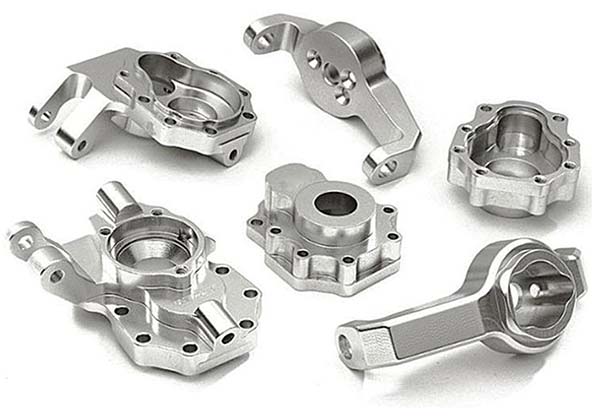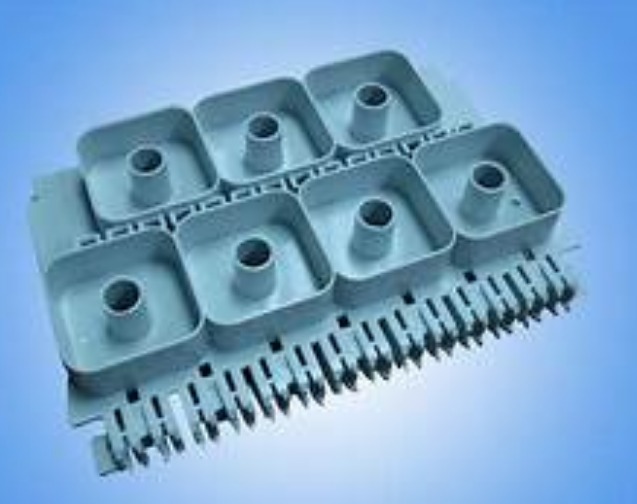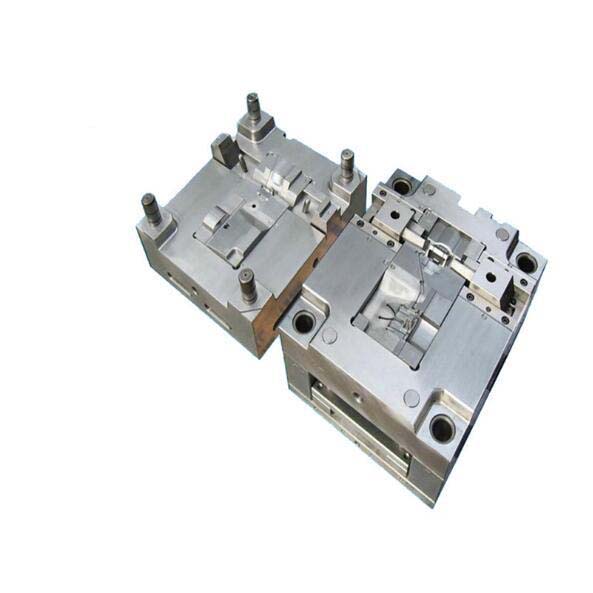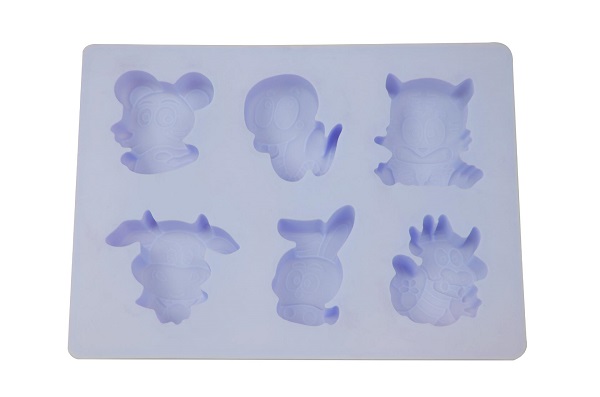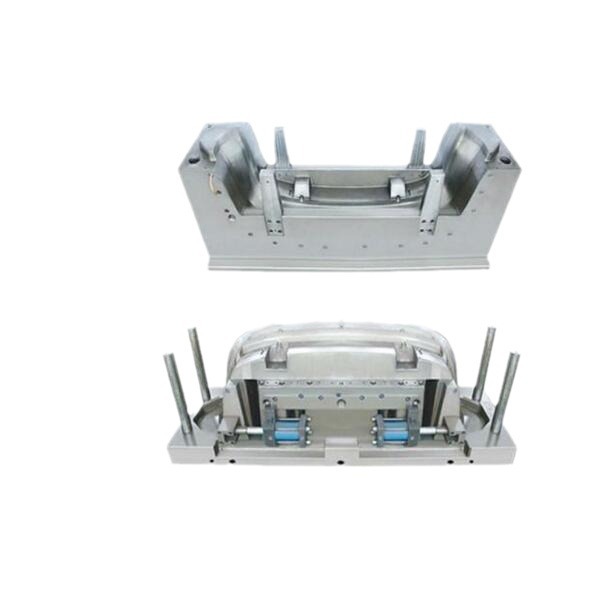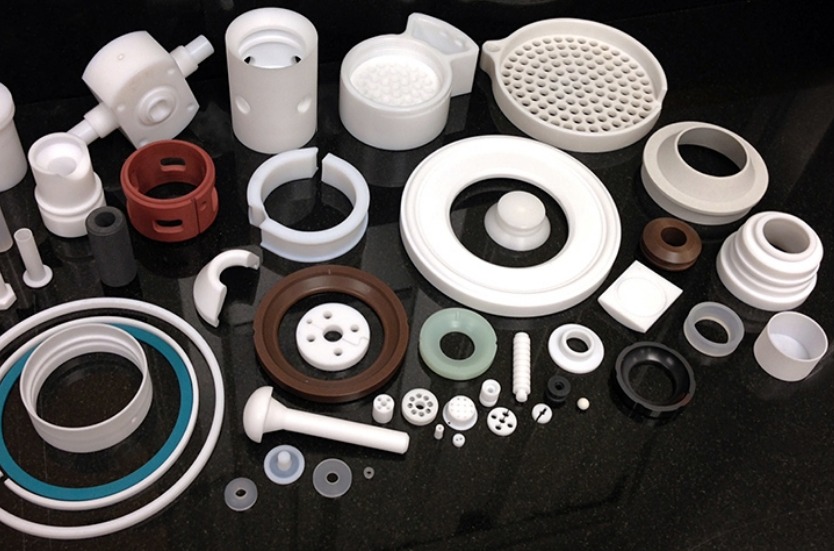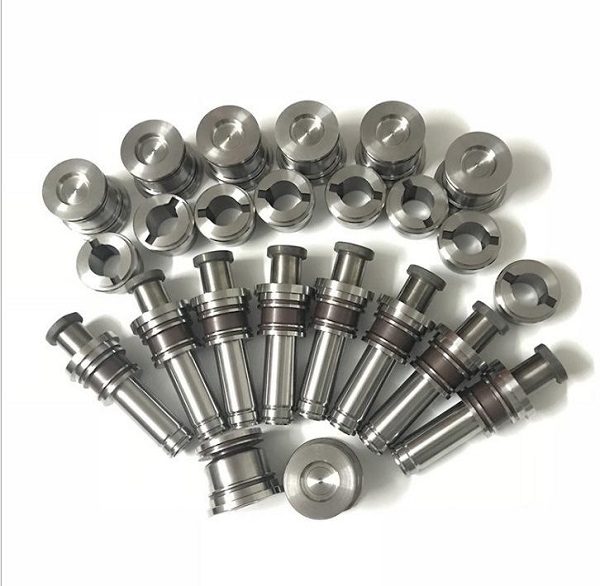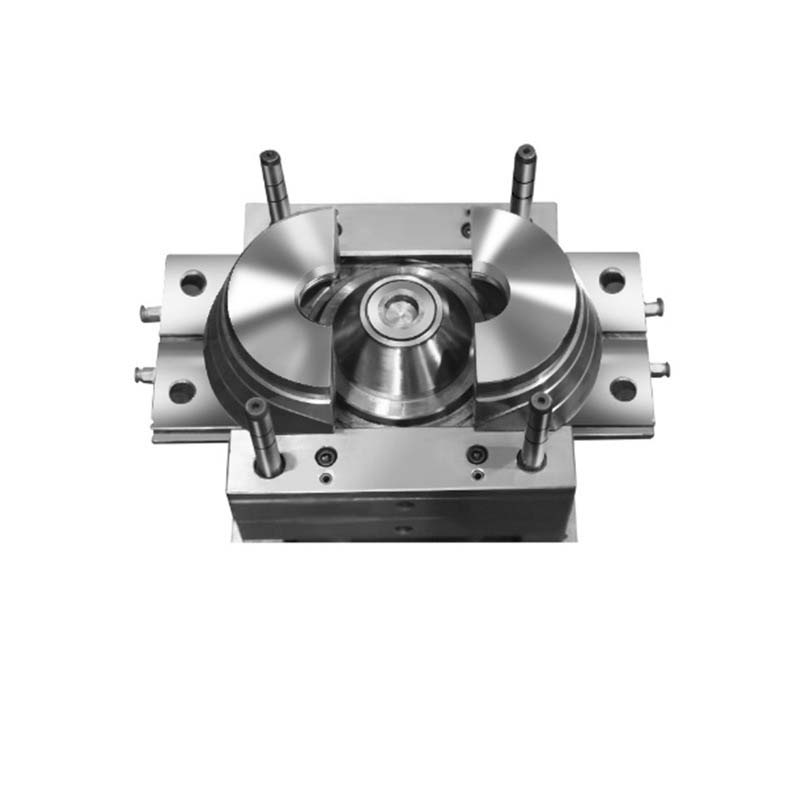Understanding the Basics of Plastic Injection Mold Parts
Plastic injection mold parts play a pivotal role in the manufacturing industry. They are the building blocks that enable the mass - production of a vast array of plastic products, from the tiny components in electronic devices to the large parts used in automotive manufacturing. For Yigu Technology example, in the production of a smartphone, plastic injection mold parts are used to create the casing, buttons, and internal structural components. These parts ensure that the final product has the precise shape, dimensions, and functionality required.
The process of plastic injection molding involves injecting molten plastic into a mold cavity, where it cools and solidifies into the desired shape. The quality of the plastic injection mold parts directly impacts the quality of the final plastic products. High - quality mold parts can produce products with tight tolerances, smooth surfaces, and excellent mechanical properties. On the contrary, low - quality mold parts may lead to products with defects such as warping, shrinkage, or poor surface finish.
Given the significance of plastic injection mold parts in the manufacturing process, choosing the right supplier becomes crucial. A reliable supplier can provide high - quality parts, timely delivery, and excellent after - sales service, which are essential for the success of any manufacturing project.
Key Factors to Consider When Choosing a Supplier
Quality Assurance
Quality assurance is the cornerstone of any successful manufacturing project. When choosing a plastic injection mold parts supplier, it's crucial to ensure that they adhere to high - quality standards. Reputable suppliers often hold certifications such as ISO 9001. This international standard demonstrates that the supplier has a well - defined quality management system in place, covering all aspects from raw material procurement to the final product inspection.
High - quality plastic injection mold parts typically have the following characteristics:
- Precision: They are manufactured to tight tolerances. For instance, in the aerospace industry, mold parts for components like interior panels may have tolerances as low as ±0.05mm. This precision ensures that the final plastic products fit together perfectly during assembly.
- Durability: Made from high - grade materials, these parts can withstand the high - pressure and high - temperature conditions during the injection molding process. High - quality steel alloys are often used for mold cores and cavities, which can endure thousands of molding cycles without significant wear and tear.
- Consistency: Each batch of mold parts should be consistent in quality. A good supplier will have strict quality control measures at every stage of production, including in - process inspections and final product testing, to guarantee that every part meets the same high - quality standards.
Production Capabilities
The production capabilities of a supplier can significantly impact your manufacturing operations.
- Advanced Equipment: Suppliers equipped with state - of - the - art machinery can produce higher - quality mold parts more efficiently. For Yigu Technology example, computer - numerical - control (CNC) machines offer high precision in machining complex shapes. A supplier with multi - axis CNC machines can create intricate mold cavities and cores that are difficult to achieve with traditional machining methods.
- Production Capacity: Consider the supplier's ability to meet your production volume requirements. If you plan to produce a large number of plastic products, say 100,000 units per month, the supplier should have the capacity to supply the necessary mold parts in a timely manner. Some large - scale suppliers can handle high - volume orders due to their extensive production lines and multiple manufacturing facilities.
- Diverse Production Processes: A supplier that offers a variety of production processes can be more flexible. In addition to traditional plastic injection molding, they may also provide services like insert molding, overmolding, or two - shot molding. Insert molding, for example, is useful when you need to combine plastic with metal or other materials in a single part, such as in the production of electronic connectors.
Experience and Expertise
A supplier's experience and expertise are invaluable assets.
- Industry - Specific Knowledge: Suppliers with experience in your industry understand the unique requirements and challenges. For example, a supplier with a long - standing presence in the medical device industry will be familiar with the strict regulations regarding biocompatibility and sterilizability of plastic components. They can ensure that the mold parts used to produce medical devices meet all the necessary regulatory standards.
- Problem - Solving Skills: Seasoned suppliers have encountered and overcome various production - related issues. If you face problems such as warping in your plastic products, an experienced supplier can quickly diagnose the root cause, whether it's a problem with the mold design, the injection process parameters, or the material used, and provide effective solutions.
- Innovation: With years of experience, suppliers are often at the forefront of innovation. They may introduce new materials or manufacturing techniques that can improve the quality and performance of your plastic products. For Yigu Technology example, some suppliers are now using advanced simulation software to optimize mold designs before production, reducing the risk of defects and improving production efficiency.
Cost - Effectiveness
While cost is an important consideration, it should not be the sole determining factor when choosing a plastic injection mold parts supplier.
- Total Cost vs. Price: The cheapest supplier may not always offer the best value. Consider the total cost, which includes factors such as the quality of the parts, delivery times, and after - sales service. A lower - priced supplier that provides low - quality parts may lead to higher costs in the long run due to product defects, rework, and production delays.
- Value - Added Services: Some suppliers may charge a slightly higher price but offer value - added services. These can include design assistance, where they help you optimize your product design for better manufacturability, or inventory management, where they keep a certain level of inventory of your required mold parts, reducing your stock - holding costs.
- Long - Term Cost Savings: Building a long - term relationship with a reliable supplier can result in cost savings over time. They may offer volume discounts as your business grows, or work with you to continuously improve the production process, reducing material waste and production costs.
Customer Service and Communication
Good customer service and communication are essential for a smooth business relationship.
- Responsiveness: A supplier that responds promptly to your inquiries, whether it's a question about product specifications, delivery schedules, or pricing, shows that they value your business. For example, if you send an email asking for a quote on a new mold part, a good supplier should reply within 24 - 48 hours.
- Technical Support: They should be able to provide technical support throughout the project. This can include helping you select the right materials for your application, offering advice on mold maintenance, or assisting with troubleshooting during the production process.
- Transparency: Transparency in communication is key. The supplier should keep you informed about the progress of your order, any potential issues that may arise, and the steps they are taking to address them. For example, if there is a delay in production due to a machine breakdown, they should notify you immediately and provide a revised delivery schedule.
Location and Logistics
The location of the supplier and their logistics capabilities can impact your business in several ways.
- Proximity: A local supplier may offer shorter lead times and lower transportation costs. If you need urgent deliveries of mold parts, a nearby supplier can often fulfill your order more quickly. For example, if you are based in the United States and have a local supplier in the same state, you can expect to receive your parts within a few days, compared to weeks if the supplier is overseas.
- Shipping and Delivery Options: The supplier should have reliable shipping partners and offer various delivery options. They should be able to handle different types of shipments, whether it's small parcels for sample parts or large - volume shipments for production - ready mold parts. Additionally, they should provide tracking information so that you can monitor the progress of your order.
- Customs and Import Regulations: If you are sourcing from an overseas supplier, they should be familiar with customs and import regulations. They can help you navigate the paperwork and ensure that your shipments clear customs smoothly, avoiding any delays or unexpected costs.
Tips for Evaluating a Potential Supplier
Request Samples
Requesting samples is a practical and effective way to evaluate the quality of plastic injection mold parts. A sample allows you to physically inspect the part, examine its surface finish, and check for any visible defects. You can also perform simple tests on the sample, such as measuring its dimensions with precision measuring tools to verify the accuracy of the manufacturing process.
For example, if you are looking for mold parts to produce small plastic gears, a sample gear can help you assess the smoothness of the teeth, the concentricity of the holes, and the overall strength of the part. By having a sample in hand, you can make a more informed decision about whether the supplier's products meet your quality standards.
Check References
Checking the supplier's references is an important step in evaluating their credibility and reliability. You can ask the supplier for a list of their existing or previous customers and then reach out to these references. By talking to other customers, you can gain insights into the supplier's performance in terms of product quality, delivery times, and customer service.
For instance, a customer who has been working with the supplier for a long time can tell you if they have experienced any consistent quality issues, whether the supplier has always met their delivery deadlines, and how well the supplier handled any problems or complaints. Positive references from satisfied customers are a strong indication that the supplier is trustworthy, while negative feedback should raise red flags and prompt you to further investigate.
Visit the Facility
Visiting the supplier's manufacturing facility provides a comprehensive view of their operations. When you visit, you can observe the production environment firsthand. A clean, well - organized factory floor is often a sign of a well - managed operation. You can also see the production equipment in action, which gives you an idea of its age, condition, and technological sophistication.
During the visit, you can walk through the production process, from raw material storage to the final product inspection area. This allows you to understand how the supplier manages quality control at each stage, the efficiency of their production lines, and their overall production capacity. For example, if you notice that the supplier has a large number of quality inspection stations and uses advanced inspection equipment, it shows their commitment to quality.
Yigu Technology's Perspective
As a non - standard plastic metal products custom supplier, Yigu Technology highly values quality. We have a strict quality control system in place, from sourcing high - grade raw materials to the final inspection of products. Our quality - assurance team is well - trained and uses advanced inspection equipment to ensure that each plastic injection mold part meets high - quality standards.
We also focus on customization. Understanding that each customer has unique requirements, our professional design team works closely with clients. They use advanced design software to create customized mold part designs that precisely match the clients' needs, whether it's for a unique product shape or specific functional requirements.
Equipped with a team of experienced engineers and technicians, and advanced manufacturing equipment like high - precision CNC machines, we can handle complex production tasks. This combination of professional personnel and advanced equipment enables us to provide high - quality products and meet tight delivery schedules, ensuring that our customers' projects progress smoothly.
FAQ about Plastic Injection Mold Parts
What is the typical lead time for plastic injection mold parts production?
The typical lead time for plastic injection mold parts production can vary widely. On average, for a standard mold part with a relatively simple design, the lead time may be around 2 - 4 weeks. However, for complex mold parts, especially those with intricate geometries or tight tolerances, it could take 6 - 8 weeks or even longer. Factors such as the complexity of the mold design, the availability of raw materials, the production capacity of the supplier, and the number of cavities in the mold all influence the lead time. For example, if a mold has multiple cavities for high - volume production, more time is needed to ensure the precision and quality of each cavity.
How can I ensure the quality of plastic injection mold parts during mass production?
To ensure the quality of plastic injection mold parts during mass production, several measures can be taken. First, establish a comprehensive quality inspection process. This includes in - process inspections at key production stages, such as after the machining of the mold cavities and cores, and before the assembly of the mold. Random sampling inspections of the final mold parts should also be carried out. Use advanced inspection equipment like coordinate measuring machines (CMMs) to accurately measure the dimensions of the parts and ensure they meet the specified tolerances. Additionally, the supplier should have a quality management system in place, such as ISO 9001, which helps standardize the production process and quality control procedures.
What are the common materials used for plastic injection mold parts?
Common materials for plastic injection mold parts include:
- Steel Alloys: Such as P20 and 718 steel. P20 is a pre - hardened steel with good machinability and is suitable for general - purpose molds. It offers a balance between cost and performance, often used in the production of consumer product molds. 718 steel has higher strength and hardness than P20, and is more suitable for molds that require longer service life and better dimensional stability, like molds for automotive components.
- Aluminum Alloys: Aluminum alloys, like 6061 and 7075, are known for their low density and high thermal conductivity. They are often used when fast heat dissipation is required during the injection molding process, such as in the production of molds for thin - walled plastic parts. Their lightweight nature also makes them easier to handle during mold manufacturing and installation.
- Tool Steel: Materials like H13 tool steel are heat - resistant and have excellent toughness. They are ideal for molds used in high - temperature and high - pressure injection molding processes, such as those for producing engineering plastics with high melting points.
